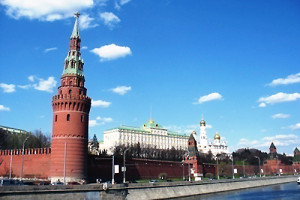Who Might Russia Declare A ‘Foreign Agent’ Journalist? Pretty Much Anyone, Really.

(Article text ©2021 RFE/RL, Inc., Radio Free Europe/Radio Liberty – rferl.org – Aug. 25, 2021 – article text also appeared at rferl.org/a/russia-foreign-agent-anyone/31426283.html)
As the government of Russian President Vladimir Putin accelerates its campaign against independent journalism, declaring multiple investigative outlets “foreign agents,” reporters caught up in the dragnet have long been wondering why some have been targeted while others have not.
In December 2020, five individual Russians — three correspondents affiliated with RFE/RL’s Russian-language services, a human rights activist, and a St. Petersburg feminist performance artist — were added to the controversial “foreign agents” list, prompting many to wonder why they had been singled out. Since then, the list has been expanded to include the names of multiple investigative reporters digging into state corruption.
On August 23, Russia’s Justice Ministry finally clarified the criteria ostensibly used by the authorities to determine whether an outlet or individual is deserving of the label, which does not directly lead to criminal charges but rather to vastly increased bureaucratic requirements and often an exodus of advertising partners. The criteria include, it turns out, pretty much any form of contact with foreign entities.
The Justice Ministry, which officially makes the determination on adding or removing outlets from the “foreign agent” list, has increasingly been urged to explain its position amid the authorities’ intensifying push that is seemingly intended to restrict the work of investigative journalists shedding light on corruption and alleged government misdeeds.
It finally did so before a largely sympathetic audience. The occasion was a roundtable on the “foreign agent” law hosted by the Kremlin’s Human Rights Council, a pliant advisory body that underwent a controversial reshuffle in 2019 and is now run by a former television presenter who largely toes the Kremlin line.
Yeva Merkacheva, a member of the council, gave an account of the meeting in a Facebook post, saying Justice Ministry spokesman Roman Tsyganov appeared “uncomfortable” as he justified the crackdown on journalism in front of the public figures and human rights activists.
According to Merkacheva, Tsyganov explained that journalists could be added if they go on press tours funded by a foreign organization, receive money to travel to an international conference or to receive a reporting award they won, or if they receive money from relatives or friends abroad. Furthermore, the state does not need to furnish proof that the journalist or media outlet is engaged in “political activity” — one of the official criteria for being declared a “foreign agent” in Russia.
“Things aren’t great. Every journalist is a potential foreign agent,” Merkacheva wrote, summing up her account of the session.
Merkacheva, a former journalist who now focuses on the rights of detainees, promised to push for a change in the law, including a warning system that would alert journalists in advance of possible violations and a system of fines that would precede official inclusion on the “foreign agent” list. But, she warned, any such changes couldn’t be implemented before October.
‘Monstrous’ Law
Merkacheva’s pledge to try to water down the legislation was immediately criticized on Facebook by users who argued that the law is an aberration in itself.
“The whole law is monstrous. It needs to be scrapped,” Facebook user Sonia Sokolova wrote in response to Merkacheva’s post. “And you’re trying to bargain about how best to cut heads off — in one fell swoop, or in bits.”
During the meeting, Tsyganov explained that an outlet or individual can lobby for removal from the “foreign agent” register by appealing to the Justice Ministry and providing evidence that it no longer gets foreign financing. But no “foreign agent” outlet or individual has yet been successful in proving their innocence.
“For over a month, I’ve been fulfilling the nonsensical requirements of the media foreign-agent law,” RFE/RL journalist Yelizaveta Mayetnaya wrote in a Facebook post on August 24. “I’m not getting any answers on what sins qualified me for inclusion on this esteemed list.”
In her post, Merkacheva concluded that the prescribed legal route to getting removed from the “foreign agent” list “simply doesn’t work.”
‘We Must Speak Out’
Russia’s so-called “foreign agent” legislation was adopted in 2012 and has been modified repeatedly. It requires nongovernmental organizations that receive foreign assistance and that the government deems to be engaged in political activity to be registered, to identify themselves as “foreign agents,” and to submit to audits. Later modifications targeted foreign-funded media.
In 2017, the government placed RFE/RL’s Russian Service on the list, along with six other RFE/RL Russian-language news services, and Current Time, a network run by RFE/RL in cooperation with VOA.
Human Rights Watch has described the “foreign agent” legislation as “restrictive” and intended “to demonize independent groups.”
While Russia’s journalistic community has been in uproar over the “foreign agent” legislation, there has been little protest from the population at large. On August 24, the Media Working Group of the European Parliament issued a statement strongly condemning the Russian government’s use of “foreign agent” legislation.
Over the weekend, several journalists were detained at single-person pickets against the law, and a journalism union has requested a permit to stage a demonstration in central Moscow in early September.
One of the weekend pickets, on August 23 in Pskov, was attended by Denis Kamalyagin, the editor-in-chief of a local newspaper who was among the first five people in Russia to be declared a “foreign agent” media outlet.
“I believe that we should always express our views and not be silent,” he told RFE/RL’s Russian Service. “Our job is to not be silent.”
